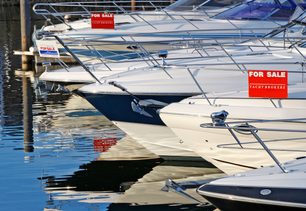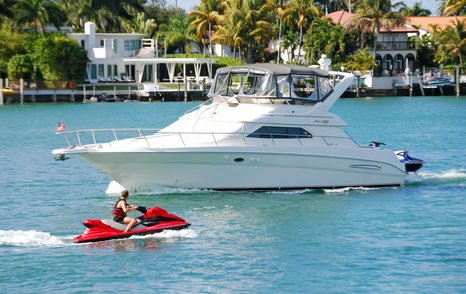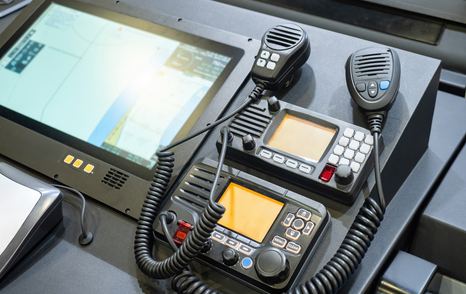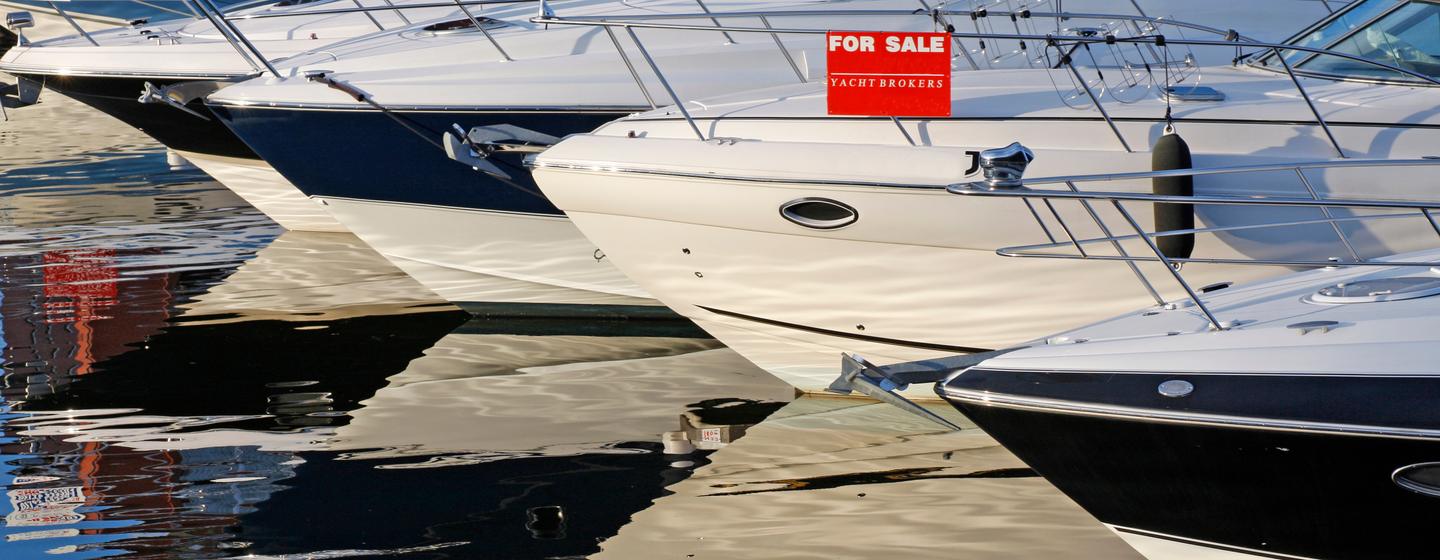Whether this is your first boat purchase or upgrading after catching the cruising bug, setting a boat-buying budget at the beginning of your search is crucial. Staying within your budget ensures you enjoy ownership while overstepping it can lead to regret and dampen your enthusiasm.
This article outlines the essential steps for creating a budget that matches your financial capacity and boating aspirations. From understanding the initial purchase price to considering initial expenses and accounting for unforeseen surprises, we offer insights to help you establish a practical and sustainable budget for embarking on your boating adventures.
You Already Know Your Budget
It's inherent to know what you can and can't afford, whether it's a house, a car, a pair of new shoes, or, in this case, a boat. First of all, well done you, a boat is out of reach of many and you've probably worked hard to earn this. To ensure the boat you're about to buy aligns with your desired boating lifestyle and factors in all elements of the purchase, let's take a look into the considerations.
You will already have a figure in mind, so let's factor in the initial expenses from your boat-buying budget that will help prevent overstretching.
It's wise to include a contingency amount for unforeseen circumstances; at least 20% should be appropriate.
Initial Expenses
You may encounter a few setbacks before finding your ideal boat. You may find a boat you like enough to proceed to the next step of engaging a marine surveyor only to discover any number of concerns within the bilges or build. The surveyor's invoice must be paid regardless of whether you proceed with the sale, so allow for a few wrong turns along the way.
Factor in travel expenses for boat shows and sales marinas, including hotel stays and transfers, as they all add up. We'll delve into each expense category in this article, but failing to include such expenses in your research can lead to hidden budget increases.
Boat Insurance
Making a few inquiries into yacht insurance will allow you to factor in this essential expense and later include it in your annual running costs review. Many factors can help reduce the initial premium, so explore your options and read our guide below.
Mooring and Berthing
This one and the insurance one above can be interchangeable in terms of priority, as your insurance premium will be affected by where you plan to keep your new boat.
Marina berths can vary significantly in price and lease arrangements. If you have an ideal location in mind, contact them early to inquire about options and availability for your boat's size.
If the marina offers you a berth that isn't in your preferred location, it's wise to accept it and express your preference for a specific berth to move to when it becomes available. Building good relationships with marina managers and crew will help.

When securing your berth, your insurance policy, ownership papers, and bill of sale will be required.
If you choose a mooring or permanent anchorage, be prepared for higher insurance premiums.
Surveys and Specialists
If you are buying a pre-owned boat, engaging a marine surveyor to thoroughly inspect any used boat you consider buying is extremely wise.
An experienced surveyor will examine every nook and cranny, uncovering any issues that might affect the sale, from hull cracks to leaking batteries.
Choose a marine surveyor associated with a governing body, such as the Professional Yacht Designers and Surveyors (YDSA), the Society of Accredited Marine Surveyors (SAMS), or The International Institute of Marine Surveying (IIMS).
A surveyor may identify concerns with specific areas of the boat, like the engine, and recommend a specialist review. These costs add up and should be factored in.
Negotiation
Based on findings from the marine surveyor and any specialists you engaged, this could present opportunities at the negotiating table.
Through your buyer's broker or the sales agent, discussions can occur regarding actions like servicing the engine or repairing specific elements before the sale.
As the buyer, it's crucial to leave the negotiating table feeling content with the sale prospect and assured that you've secured a favorable deal on the boat. Anything less may lead to lingering concerns affecting your enjoyment of the boat in the future.
Negotiation options may include you, as the buyer, covering the cost of a full engine service, with the seller responsible for addressing any concerns discovered during the service.



Negotiating when buying a new boat involves several key factors that can help you secure the best deal.
Be informed: Research the boat's market value, seasonal pricing trends, and the manufacturer's suggested retail price (MSRP). Compare offers from different dealers.
Features and Upgrades: Highlight your interests and use them as leverage. Discuss financing options and additional costs such as maintenance and warranties.
Timing: Purchase during off-peak seasons or end-of-quarter sales for potential advantages.
Don't hesitate to walk away if the deal doesn't meet your expectations; this can prompt the seller to reconsider.
Boat show season If a show is approaching, shipyards or brokers may want to use your yacht for publicity. Negotiate a deal for their use.
The Extras
Begin your research early on the elements you plan to add, upgrade, or improve on your boat, ensuring they fit within your budget. If watersports are a priority and you're considering personal watercraft and seabobs, calculate these costs in advance.
Alternatively, if you're aiming to turn your boat into an entertainment hub with a top-notch sound system and vibrant multi-functional displays for lively gatherings and gaming nights, plan accordingly. Prioritize advanced navigational technology like modern GPS systems, radar, and fish finders if remote cruising is on your agenda to enhance safety and navigation efficiency.



Don't overlook the importance of comfort and convenience. Allocate funds for new bedding, towels, and possibly crockery and kitchenware, as even seemingly small items like pots and pans can accumulate in cost.
By planning and budgeting for these elements early on, you'll be well-prepared to customize your boat to suit your needs and preferences.
Renewing the Essentials
On board any boat, there are essential pieces of equipment required by maritime law.
The items are generally safety-related. From life rafts and life jackets to fire extinguishers, flares, and first aid kits, these are some of the items that have expiry or servicing dates.
If these items are in date at the time of sale on a used boat, the expense can be postponed, but it's crucial to factor them in at some point. The life-saving appliances are unlikely to be included if you are buying a new boat.
For a general idea, a six-person capacity liferaft for offshore cruising can be upwards of €UR 1,400 (U$D 1,500), new life jackets required for a six-berth boat will be at least €850 ($900), and an offshore flare kit at a minimum is €250 ($260).
Deal and Delivery
Two additional considerations to include on the budget sheet are legal costs and delivery expenses.
Firstly, legal costs cover the services of a marine specialist lawyer to review the sales contract, ensuring its integrity and potentially aiding with registration and any desired change of flag.
Secondly, delivery costs encompass the expenses associated with transporting the boat to its designated location, which may vary depending on the distance and method of transportation.
Including these items in your budget ensures comprehensive financial planning for your boat purchase.


Note from the team: When you take delivery of your boat, firstly, congratulations! Secondly, take some time to register all the fitted equipment in your name. Read our handy guide below.
Relax and Enjoy
Maintaining a firm grip on your boat buying budget will prevent regrets during ownership. Ideally, you'll sign the contract, shake hands, and step aboard your new boat with delight, knowing it will bring you pleasure for years to come. Overspending can breed doubts that linger and overshadow your boating experiences.

The boat sales market offers a wide array of models in all shapes and sizes, and the YachtBuyer boat sales listings are verified, so there's no need to rush into a decision. Relax and enjoy not only the boat-buying process but also the ownership experience.
Bon voyage!








